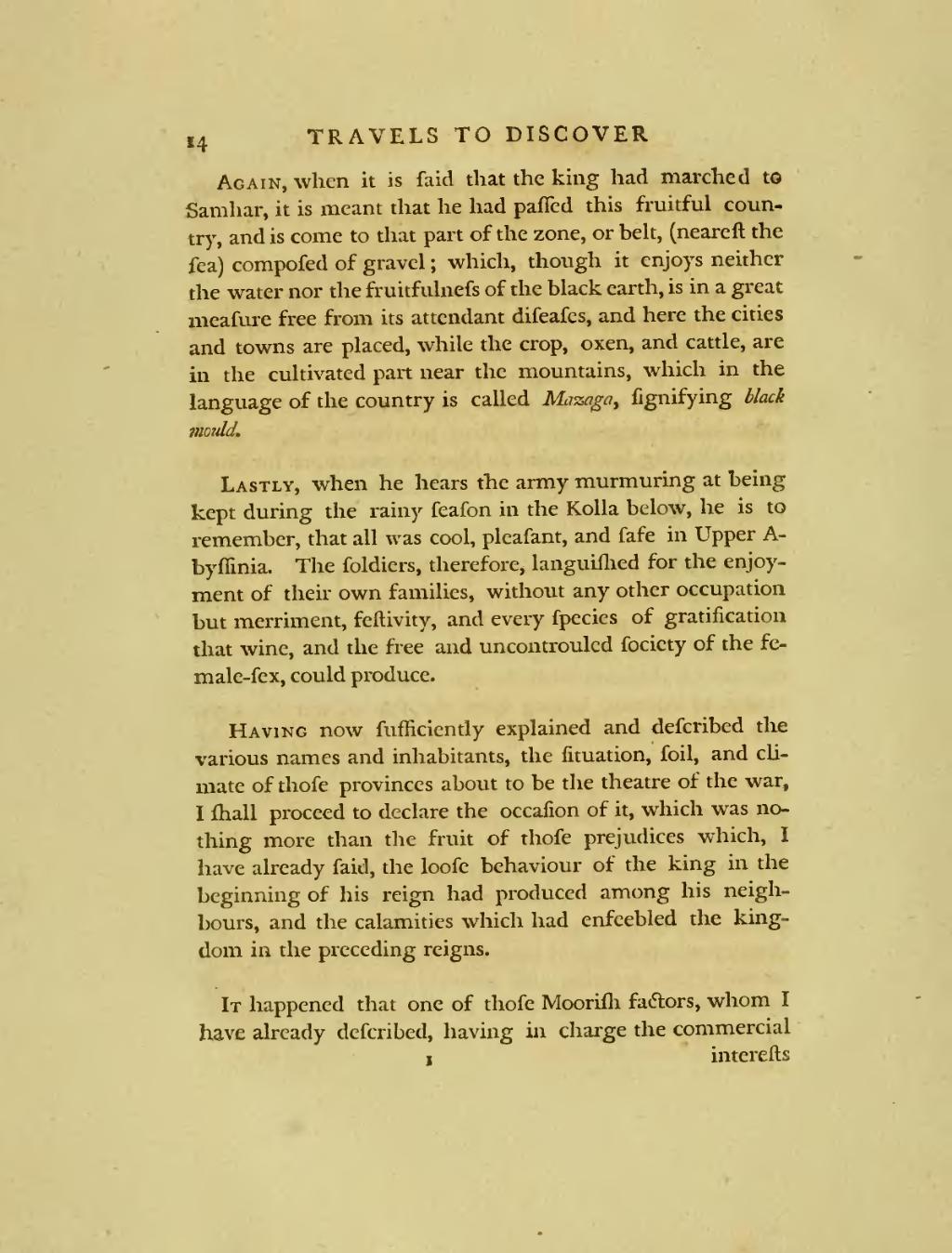Again, when it is said that the king had marched to Samhar, it is meant that he had passed this fruitful country, and is come to that part of the zone, or belt, (nearest the sea) composed of gravel; which, though it enjoys neither the water nor the fruitfulness of the black earth, is in a great measure free from its attendant diseases, and here the cities and towns are placed, while the crop, oxen, and cattle, are in the cultivated part near the mountains, which in the language of the country is called Mazaga, signifying black mould.
Lastly, when he hears the army murmuring at being kept during the rainy season in the Kolla below, he is to remember, that all was cool, pleasant, and safe in Upper Abyssinia. The soldiers, therefore, languished for the enjoyment of their own families, without any other occupation but merriment, festivity, and every species of gratification that wine, and the free and uncontrouled society of the female-sex, could produce.
Having now sufficiently explained and described the various names and inhabitants, the situation, soil, and climate of those provinces about to be the theatre of the war, I shall proceed to declare the occasion of it, which was nothing more than the fruit of those prejudices which, I have already said, the loose behaviour of the king in the beginning of his reign had produced among his neighbours, and the calamities which had enfeebled the kingdom in the preceding reigns.
It happened that one of those Moorish factors, whom I have already described, having in charge the commercial
